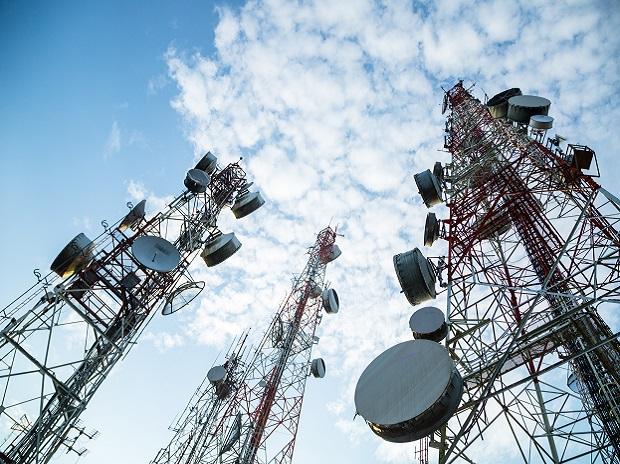The telecom tariff hike along with the recent relief package offers sufficient headroom for the industry to undertake deleveraging as well as fund capex for 5G tech upgrade, ICRA said on Wednesday revising outlook on telecom services sector to 'stable' from 'negative'.
The hike coupled with consistent upgradation of subscribers to 4G from 2G and increase in usage of telephony services is expected to result in improvement in industry ARPU (average revenue per user) to around Rs 170 by the end of FY2023, it said.
"...ICRA has revised its outlook on the telecom services industry to stable from negative," according to a statement.
The telecom industry has implemented the long-awaited tariff hikes which have the potential to improve the industry ARPU levels to around Rs 170 by the end of FY2023, according to ICRA.
"This will result in increased profit generation, which coupled with the relief package announced by the government, provides enough headroom for the industry to undertake deleveraging as well as fund capex (capital expenditure) for the technology upgrade to 5G," ICRA said.
Sabyasachi Majumdar, senior vice-president and group head (corporate ratings) of ICRA Ltd, said the latest round of tariff hikes where telcos increased the prepaid tariffs by around 20 per cent will provide much-needed traction in the ARPU levels.
"We expect the industry revenues to grow by 18-20 per cent in FY2023, followed by a growth of 10-12 per cent in FY2024, which given the high operating leverage, is likely to translate in healthy expansion in operating profits, the same are projected to grow by around 30 per cent in FY2023," it said.
As per ICRA's calculations, the moratorium on dues, announced as part of the relief package, provides an annual cash flow breather of about Rs 40,000 crore for the industry till FY2025.
The bank guarantee (BG) requirement for the telcos has also been slashed and the Department of Telecommunications has started returning the BGs to the telcos, it said noting this improves the sector's financial flexibility.
"While the moratorium on the dues would impact the non-tax receipts of the government from the telecom sector, two telcos have pre-paid their dues towards earlier spectrum auctions totalling to Rs 26,300 crore thereby making up for the loss to the government," it said.
For FY2022, the telecom sector is expected to contribute around Rs 54,000 crore to the government's non-tax receipts which will be close to the budgeted estimate for the fiscal, it estimated.
Debt, however, continues to remain the "Achilles' heel" of the industry, it warned.
ICRA expects industry debt levels to remain at around Rs 4.7 lakh crore as on March 31, 2022, before moderating to Rs 4.5 lakh crore as on March 31, 2023.
"Telcos have been focusing on de-leveraging and Bharti Airtel recently concluded its rights issue of Rs 21,000 crore and collected 25 per cent as upfront payment, while Vodafone Idea is also scouting for a fundraiser," ICRA said in a statement.
Ankit Jain, assistant vice-president and sector head at ICRA Ltd, said that while there has been an improvement in operating metrics of the industry, the next phase of growth will be driven by the non-telco businesses, including enterprise business, cloud services, digital services and fixed broadband services.
(Only the headline and picture of this report may have been reworked by the Business Standard staff; the rest of the content is auto-generated from a syndicated feed.)
 Dear Reader,
Dear Reader,
Business Standard has always strived hard to provide up-to-date information and commentary on developments that are of interest to you and have wider political and economic implications for the country and the world. Your encouragement and constant feedback on how to improve our offering have only made our resolve and commitment to these ideals stronger. Even during these difficult times arising out of Covid-19, we continue to remain committed to keeping you informed and updated with credible news, authoritative views and incisive commentary on topical issues of relevance.
We, however, have a request.
As we battle the economic impact of the pandemic, we need your support even more, so that we can continue to offer you more quality content. Our subscription model has seen an encouraging response from many of you, who have subscribed to our online content. More subscription to our online content can only help us achieve the goals of offering you even better and more relevant content. We believe in free, fair and credible journalism. Your support through more subscriptions can help us practise the journalism to which we are committed.
Support quality journalism and subscribe to Business Standard.
Digital Editor

RECOMMENDED FOR YOU